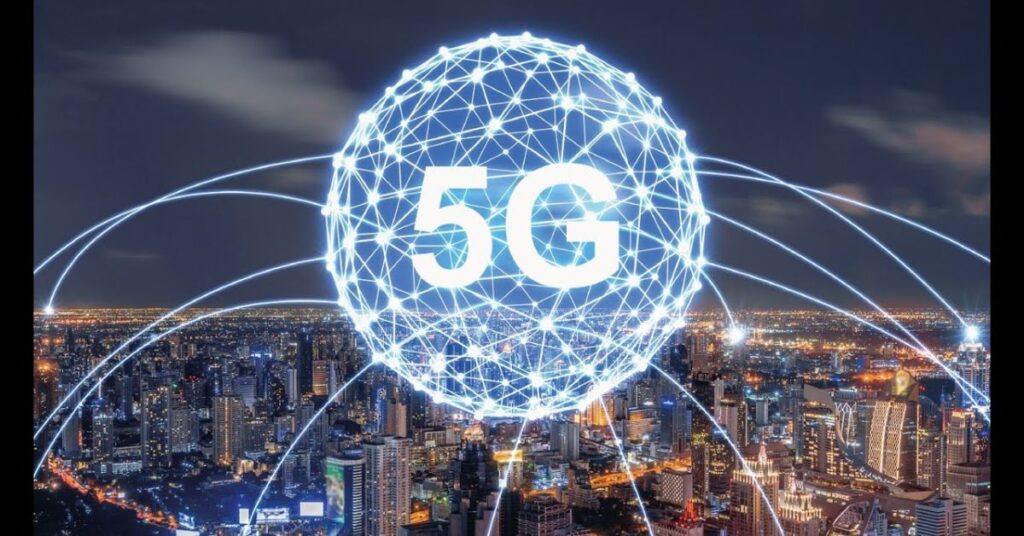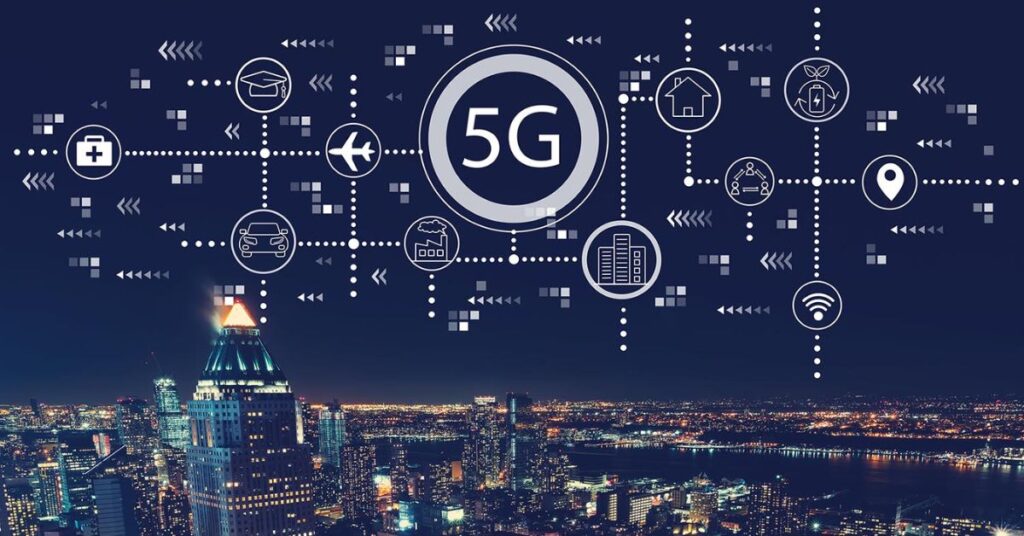5G technology is the latest generation of wireless networks. It is much faster than 4G and can handle more devices simultaneously. This technology reduces delay, making internet connections smoother and more reliable. With 5G, people can download large files in seconds, stream high-quality videos without buffering, and connect smart devices easily.
Imagine a world where self-driving cars communicate instantly, doctors perform remote surgeries, and smart cities manage traffic without human help. 5G is making all of this possible. It is not just about speed but about changing how we live and work. This new technology will improve industries like healthcare, transportation, and entertainment in ways we never thought possible.
Many countries are already rolling out 5G networks. Businesses and tech companies are using it to develop innovative solutions. As 5G spreads, we will see even more exciting advancements in communication and automation. The future of connectivity is here, and it is powered by 5G!
How Does 5G Work?
5G works by using high-frequency radio waves to send and receive data faster than older networks. It uses small cell towers placed close together to provide a strong and stable connection. These towers communicate with devices like phones, tablets, and smart gadgets. 5G also uses advanced technology to reduce delays, making internet responses almost instant.
Unlike 4G, which relies on big cell towers, 5G spreads signals through many smaller ones. This helps to cover more areas and support more devices at the same time. It also switches between different frequency bands to balance speed and coverage. This makes 5G powerful, reliable, and ready for the future of smart technology.
Read Out this Article: The Exploring Exponential Growth USA Property Market: Money6x Real Estate
Applications of 5G Technology
Consumer Applications
5G technology is improving everyday life for people. It makes internet browsing, video calls, and online gaming much faster. With 5G, users can download movies in seconds and stream high-quality videos without buffering. It also helps smart home devices work smoothly, making life easier and more connected.
Here are some key consumer applications of 5G:
- Faster Internet – Web browsing, social media, and downloads happen almost instantly.
- Better Streaming – Watch 4K and 8K videos without lag or buffering.
- Enhanced Gaming – Online games run smoothly with no delays or interruptions.
- Smart Homes – Devices like smart lights, security cameras, and voice assistants work better.
- Augmented and Virtual Reality – AR and VR experiences become more immersive and realistic.
5G is bringing new possibilities for consumers. It is making technology faster, smarter, and more enjoyable.
Enterprise Applications

5G technology is helping businesses work faster and smarter. It improves communication, boosts productivity, and supports automation. Companies can use 5G to connect employees, manage data, and improve customer service. With faster internet and lower delays, businesses can run smoothly and efficiently.
Here are some key enterprise applications of 5G:
- Remote Work – Employees can join video meetings and access files quickly from anywhere.
- Smart Factories – Machines and robots use 5G to work automatically with real-time monitoring.
- Better Customer Service – Chatbots and virtual assistants respond faster to customer questions.
- Healthcare Solutions – Hospitals can use 5G for remote surgeries and instant patient data access.
- Supply Chain Management – Companies track shipments and deliveries with real-time updates.
5G is changing the way businesses operate. It makes work faster, safer, and more efficient.
Advantages and Disadvantages of 5G Technology
5G technology has many benefits. It offers faster internet speeds and lower delays, making browsing, gaming, and streaming smoother. It also supports more connected devices, helping smart homes and cities function better. Businesses can use 5G to improve communication, automation, and remote work. This technology is also useful in healthcare, transportation, and industrial operations.
However, 5G has some challenges. It requires new infrastructure, which can be expensive and take time to install. The network may not be available everywhere, especially in rural areas. Some people also worry about security risks and data privacy. Despite these issues, 5G continues to expand and improve.
Here is a simple table showing the advantages and disadvantages of 5G:
| Advantages | Disadvantages |
| Faster internet speeds | High cost of infrastructure |
| Lower latency (less delay) | Limited coverage in some areas |
| Supports more connected devices | Possible security risks |
| Helps businesses and industries | Requires new technology for devices |
| Improves smart homes and cities | May consume more battery power |
5G is a powerful technology with great potential. While it has some challenges, its benefits are shaping the future of connectivity.
How Fast is 5G Internet?

5G internet is much faster than 4G. It can reach speeds of up to 10 Gbps, while 4G usually offers around 100 Mbps. This means you can download a full movie in just a few seconds. Websites, videos, and apps load almost instantly, making online activities much smoother.
However, 5G speed depends on different factors. Your location, network coverage, and the number of connected devices can affect performance. In cities, 5G is usually faster because there are more towers. In rural areas, the speed may be lower due to fewer 5G networks. Still, as 5G expands, more people will experience super-fast internet.
Why is 5G Important?
5G is important because it makes internet connections faster and more reliable. It allows people to download, stream, and browse without delays. Businesses use 5G to improve communication, automation, and remote work. It also helps smart devices, like home assistants and security cameras, work smoothly.
5G is also important for the future. It supports new technologies like self-driving cars, virtual reality, and smart cities. Doctors can use it for remote surgeries, and factories can run more efficiently. As 5G spreads, it will change the way we live, work, and connect with the world.
Societal Impact
5G technology is changing the way people live and work. It improves communication, making video calls and online meetings smoother. Smart cities use 5G to manage traffic, reduce pollution, and improve public safety. In healthcare, doctors can monitor patients remotely and even perform surgeries from far away.
Education is also improving with 5G. Students can attend virtual classes with high-quality video and no interruptions. Businesses can use automation and artificial intelligence to work faster and smarter. However, some people worry about job losses due to automation and data privacy risks. As 5G grows, society must find ways to use it responsibly and for the good of everyone.
FAQs
What is 5G technology?
5G is the latest wireless network that provides faster internet speeds, lower delays, and supports more connected devices.
How is 5G better than 4G?
5G is much faster, reduces lag, and allows more devices to connect without slowing down the network.
How will 5G impact daily life?
It will improve streaming, gaming, smart homes, and remote work, making internet use smoother and more efficient.
What industries benefit the most from 5G?
Healthcare, transportation, education, and businesses benefit the most by using 5G for automation, remote work, and smart technology.
Is 5G available everywhere?
No, 5G is still expanding, and coverage depends on location, with cities having better access than rural areas.
Conclusion
5G technology is changing the way we connect and communicate. It offers faster internet, lower delays, and better support for smart devices. Industries like healthcare, transportation, and business are using 5G to improve their services. As more places get 5G, life will become even more digital and connected.
However, challenges like high costs, limited coverage, and security risks still exist. Over time, these issues will improve as technology advances. 5G is shaping the future, making the world smarter and more efficient. It is not just an upgrade—it is a revolution in connectivity.







